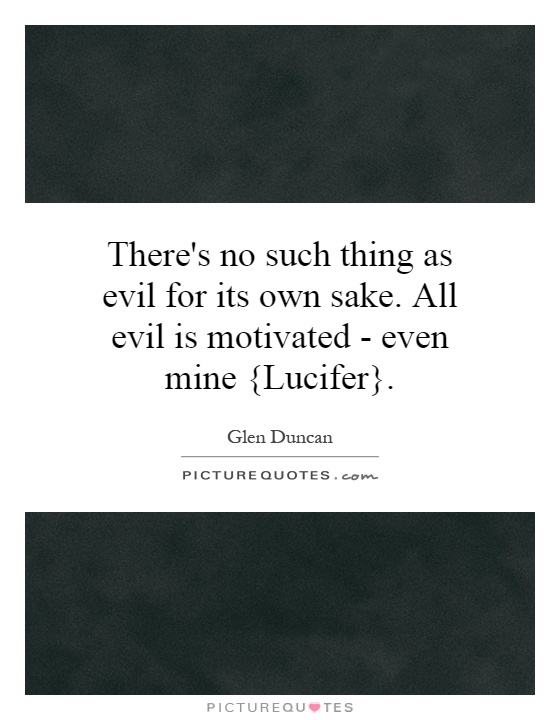There's no such thing as evil for its own sake. All evil is motivated - even mine {Lucifer}

There's no such thing as evil for its own sake. All evil is motivated - even mine {Lucifer}
In Glen Duncan's novel "I, Lucifer," the protagonist Lucifer himself makes the bold statement that there is no such thing as evil for its own sake. This idea challenges the traditional notion of evil as a force that exists independently of human motivation. Instead, Duncan suggests that all evil actions are driven by some underlying motivation, even in the case of the fallen angel Lucifer.Throughout the novel, Lucifer is portrayed as a complex and multifaceted character who is not simply a one-dimensional embodiment of evil. He is shown to possess a range of emotions, desires, and motivations that drive his actions. By acknowledging that his own actions are motivated, Lucifer is essentially admitting that he is not inherently evil, but rather a being capable of making choices and being influenced by various factors.
This idea of motivation behind evil actions is further explored through Lucifer's interactions with the other characters in the novel. As he inhabits the body of a struggling writer named Declan Gunn, Lucifer is forced to confront his own past actions and the motivations behind them. Through his experiences in the human world, Lucifer begins to question his own nature and the reasons behind his fall from grace.
By humanizing Lucifer and exploring the motivations behind his actions, Duncan challenges readers to reconsider their understanding of evil. Rather than viewing evil as a supernatural force or a simple lack of goodness, Duncan suggests that evil is a complex and nuanced concept that is deeply intertwined with human nature.
Ultimately, Duncan's exploration of evil and motivation in "I, Lucifer" serves as a powerful reminder that even the most seemingly irredeemable characters are capable of change and self-reflection. By delving into the complexities of evil and motivation, Duncan invites readers to question their own assumptions about morality and the nature of good and evil.












 Friendship Quotes
Friendship Quotes Love Quotes
Love Quotes Life Quotes
Life Quotes Funny Quotes
Funny Quotes Motivational Quotes
Motivational Quotes Inspirational Quotes
Inspirational Quotes